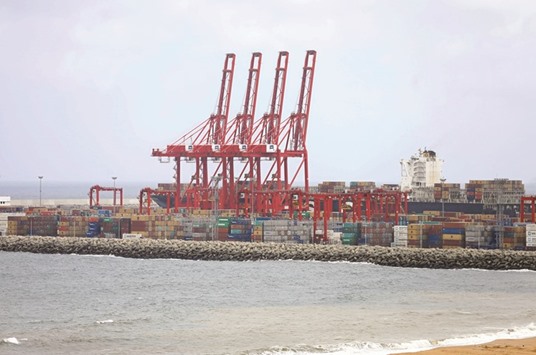Sri Lanka Yesterday signed a new deal to replace a controversial agreement with a Chinese company building a new city within Colombo to remove its freehold rights over reclaimed land after India voiced concerns over the agreement.
The Sri Lankan government said the Chinese investor would be granted new land on a 99-year lease instead of the freehold in the original deal entered into when Chinese president Xi Jinping visited Colombo in 2014.
“The tripartite agreement has many features that are beneficial to Sri Lanka that was lacking in the 2014 agreement that is now being replaced,” the government said in a statement.
For its part, the state-owned China Communications Construction Company (CCCC) said it was cooperating with the new Sri Lankan government and confirmed entering fresh agreements over the $1.4bn investment.
The Sri Lankan government had put the project on hold pending a review of all the big-ticket agreements signed under the previous administration of Mahinda Rajapakse.
The entire project has also been renamed “Colombo International Financial City” instead of the original title of “Port City” given to the reclamation of 269 hectares of land just next to the main Colombo harbour.
CCCC said it expected the project to create 83,000 new jobs and help Sri Lanka attract another $13bn in direct foreign investment to develop infrastructure within the reclaimed land.
Last week, Sri Lanka formally said it was withdrawing permission for CCCC to buy the freehold to 20 hectares of land being reclaimed after neighbouring India objected and said there must be a new agreement signed.
“India had a big concern about giving freehold land to China near the Colombo harbour,” government spokesman Rajitha Senaratne told reporters at the time.
“We have amended the agreement. There will be no freehold land but it will be on a 99-year lease.”
Former president Rajapakse relied heavily on Chinese investment to rebuild the country’s infrastructure after the end of the island’s decades-long ethnic war in May 2009, a move which some say alienated India.
The Chinese-funded port was also controversial among environmentalists.
Beijing has been accused of seeking to develop facilities around the Indian Ocean in a “string of pearls” strategy to counter the rise of rival India and secure its own economic interests.
China, the largest single lender to Sri Lanka, secured contracts to build roads, railways and ports under Rajapakse, who is under investigation over allegations of corruption during his decade in power.

A general view of the Colombo South Harbour funded by China.
